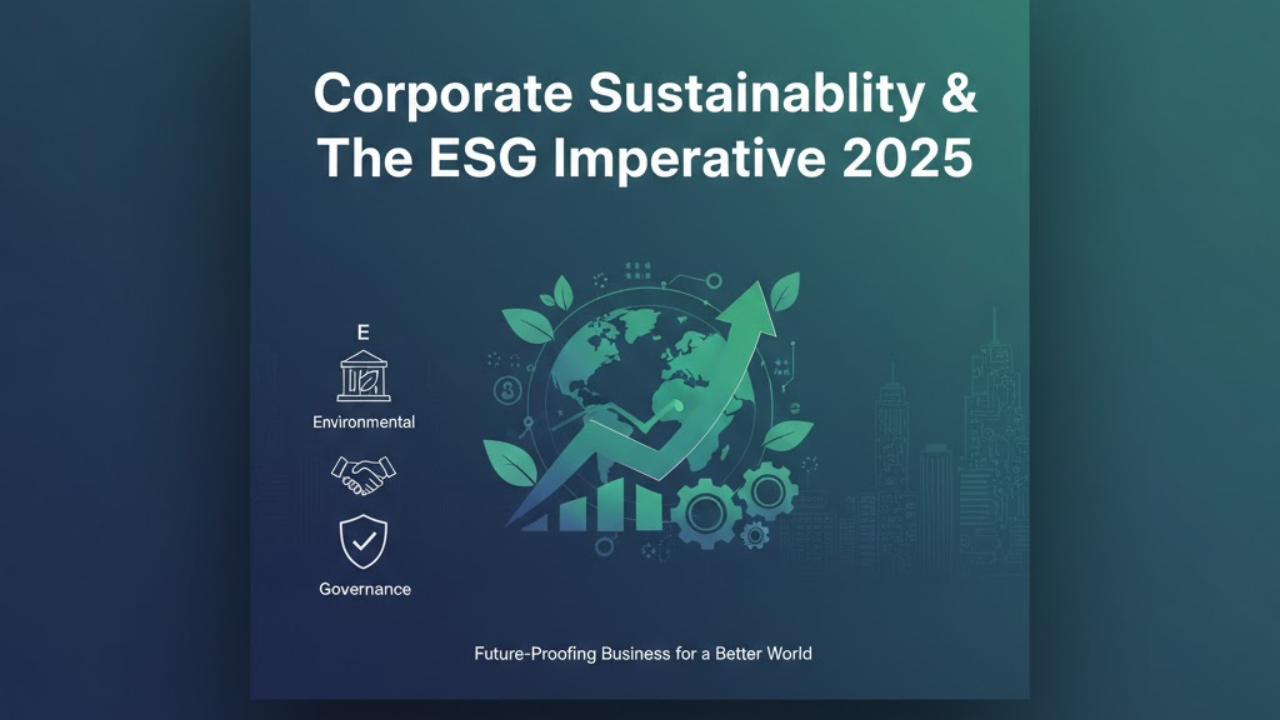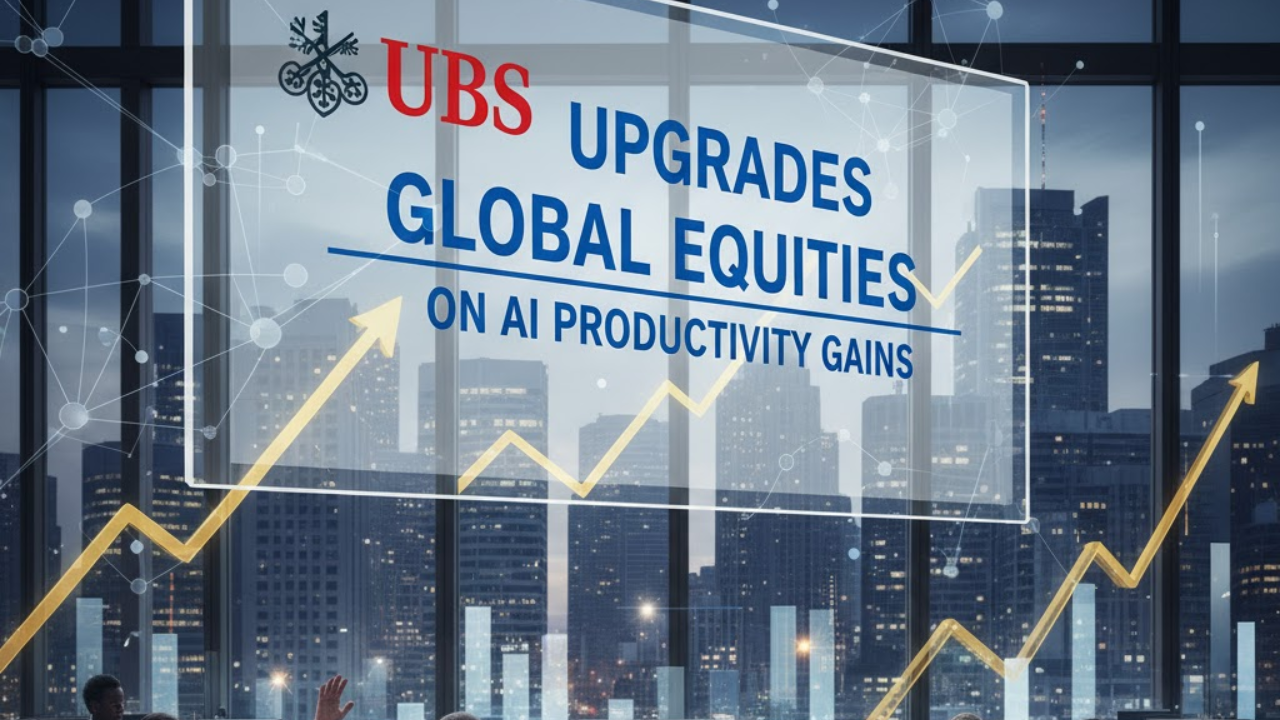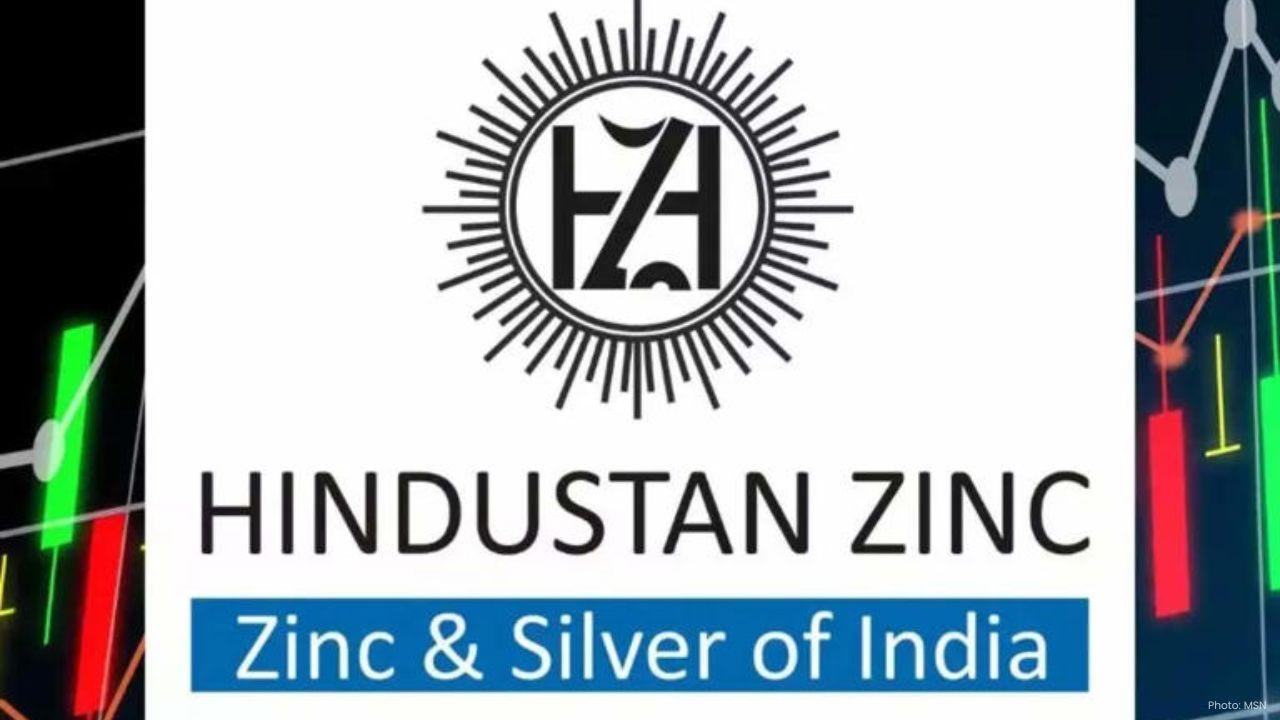
Post by : Meena Rani
In 2025, sustainability is no longer an optional corporate pursuit—it’s a core determinant of competitiveness, profitability, and resilience. The global shift toward environmental, social, and governance (ESG) responsibility has fundamentally redefined what it means to be a successful company.
The IBD 50 Most Sustainable Companies List for 2025 serves as a reflection of this change. It honors corporations that have embedded sustainability at the heart of their business strategy—not as charity or compliance, but as a source of long-term value creation.
This evolution represents a deeper truth: in the 21st century, doing good and doing well are inseparable. Companies that align profitability with purpose are emerging as leaders in the post-carbon, stakeholder-driven economy.
Investor’s Business Daily (IBD) annually recognizes global corporations that excel across a variety of sustainability parameters. In the 2025 list, the methodology focused on quantifiable metrics—carbon intensity, diversity, governance transparency, renewable energy adoption, waste reduction, and workforce well-being.
Sustainability isn’t merely about reducing emissions; it’s about integrating environmental and ethical thinking into every layer of decision-making. The companies that made the 2025 cut aren’t just cutting costs or buying carbon credits—they’re reimagining how capitalism functions in a climate-conscious world.
Among the top performers are global giants spanning technology, healthcare, finance, and manufacturing, each proving that sustainable transformation is achievable at scale.
For decades, carbon reduction was viewed as a regulatory burden. Today, it’s a strategic differentiator. Leading firms are racing to decarbonize their operations, supply chains, and logistics, seeing efficiency and innovation opportunities.
Top performers have achieved tangible progress: net-zero pathways by 2030, renewable energy transitions, and full transparency on Scope 1, 2, and 3 emissions. Decarbonization is now synonymous with future-proofing.
Circular design—where products are built for reuse, repair, and recycling—has moved from niche to mainstream. Electronics, apparel, and packaging companies are closing loops by reclaiming materials and minimizing waste.
Circularity drives both environmental and financial resilience. It reduces input costs, increases supply chain security, and appeals to eco-conscious consumers.
ESG isn’t only environmental—it’s human. The IBD list emphasizes the “S” in ESG: diversity in leadership, equitable pay, inclusion, and workforce well-being. Companies prioritizing people show higher retention, innovation, and brand trust.
In 2025, board diversity has become a boardroom KPI. Companies without inclusive cultures are losing not just talent but investors.
Technology is the backbone of sustainability execution. AI-driven carbon tracking, blockchain for supply chain transparency, IoT-enabled energy management, and predictive analytics for waste optimization are revolutionizing ESG accountability.
The 2025 sustainability leaders demonstrate that digital transformation and green transformation are two sides of the same coin.
Good governance forms the “G” in ESG—the foundation without which sustainability claims collapse. IBD’s list highlights companies with robust disclosure policies, ethical board practices, and independent sustainability audits.
Stakeholders now demand data-backed proof of sustainability, not vague promises. Firms that fail to disclose or exaggerate green claims risk reputational and legal consequences.
Investors are increasingly using ESG scores as core decision metrics. Sustainable funds globally have surpassed $4 trillion in assets, and capital continues to flow toward companies demonstrating resilience through responsible practices.
Data shows that ESG-aligned firms often outperform benchmarks during downturns, largely due to risk mitigation and operational efficiency. For investors, sustainability is less about ethics and more about long-term risk-adjusted returns.
Consumers are voting with their wallets. Millennials and Gen Z, who together account for nearly 60% of global purchasing power, consistently favor brands aligned with sustainability and social responsibility.
Transparency in sourcing, packaging, and business ethics directly influences buying behavior—forcing corporations to adapt or lose relevance.
Governments worldwide are implementing stricter ESG disclosure rules. The European Union’s Corporate Sustainability Reporting Directive (CSRD) and the U.S. SEC’s proposed climate disclosure mandates are setting new global standards.
Non-compliance now carries financial and reputational penalties, pushing companies toward proactive sustainability adoption.
Tech giants are driving renewable energy adoption through solar and wind investments powering data centers. They are also tackling e-waste by designing modular, recyclable devices and offering trade-in programs.
Banks are embedding ESG filters in lending decisions and developing sustainable finance instruments—green bonds, social impact funds, and ESG-linked credit.
Sustainability efforts here focus on ethical sourcing, reducing chemical footprints, and improving accessibility. Pharma leaders are pledging carbon neutrality in production and distribution by 2030.
Industrials are leading in circular manufacturing, renewable-powered plants, and carbon capture utilization. Sustainable production has become a global standard for competitiveness.
From zero-waste packaging to sustainable sourcing, consumer brands are reshaping supply chains. Ethical consumerism is now a powerful growth engine for brands that align values with products.
Despite progress, the path to sustainability is not without obstacles.
Greenwashing Risks: Some firms exaggerate sustainability claims for marketing value without genuine impact.
Measurement Complexity: ESG metrics remain inconsistent globally, complicating benchmarking.
Supply Chain Transparency: Tracking upstream emissions and ethics remains difficult in complex global networks.
Short-Term Profit Pressures: Sustainable transitions often require upfront capital that clashes with quarterly targets.
Inequality in Adoption: Developing nations and small enterprises struggle with the cost of implementing ESG frameworks.
These issues underline the need for standardization, collaboration, and innovation to make sustainability both credible and universal.
Sustainability has moved from being a side initiative to becoming embedded in corporate DNA. The best companies are integrating ESG into performance incentives, strategy design, and investor relations.
The IBD list shows that companies excelling in sustainability are not sacrificing profits—they are redefining them. Their value lies in balancing short-term performance with long-term resilience.
In the next decade, sustainability will no longer be a competitive differentiator; it will be a baseline expectation. Those who ignore it will be outpaced by those who innovate responsibly.
For Corporates:
Integrate sustainability into the business model, not just reporting.
Treat ESG as a profitability lever, not a compliance checklist.
Engage transparently with stakeholders across the value chain.
For Investors:
Prioritize companies with strong ESG fundamentals.
Analyze sustainability disclosures alongside financial metrics.
View ESG as risk mitigation and alpha generation.
For Policymakers:
Create unified global standards for ESG reporting.
Incentivize green innovation and penalize non-compliance.
Ensure equitable access to sustainability resources for SMEs.
The IBD 50 list of 2025 is more than an index—it’s a mirror of where global capitalism is headed. The companies leading this list prove that profit and purpose can coexist harmoniously. They show that sustainability is not just an ethical stance; it’s a strategic imperative for enduring success.
The corporate world stands at a crossroads: one path leads to short-term gain and long-term risk; the other to resilient, regenerative growth. The businesses choosing the latter are not only shaping markets—they are shaping the future.
Disclaimer:
This article is for informational and editorial purposes only. It does not constitute investment, legal, or financial advice. Readers are encouraged to conduct their own due diligence or consult professionals before making investment or strategic decisions related to ESG and sustainability.
corporate sustainability, ESG strategy, IBD sustainability list 2025, green business, sustainable companies, corporate governance, ESG innovation










Bengaluru-Mumbai Superfast Train Approved After 30-Year Wait
Railways approves new superfast train connecting Bengaluru and Mumbai, ending a 30-year demand, easi

Canada Post Workers Strike Halts Nationwide Mail and Parcel Services
Canada Post halts operations as CUPW strike disrupts mail and parcel delivery nationwide amid disput

PM Modi Launches BSNL ‘Swadeshi’ 4G Network, 97,500 Towers Built
India enters global telecom league as PM Modi inaugurates BSNL’s indigenous 4G, connecting 26,700 vi

India’s Iconic MiG‑21 Takes Final Flight After Six Decades of Service
After 60 years India retires its MiG‑21 fighter jet, a legendary yet controversial warplane marking

Hindustan Zinc unveils AI hotspot monitoring at Debari smelter
Hindustan Zinc launches AI-powered Switchyard Hotspot Monitoring at Debari smelter to cut outages bo

Chinese experts worked inside sanctioned Russian drone plant
Chinese drone specialists visited IEMZ Kupol supplying parts and drones via intermediaries, deepenin